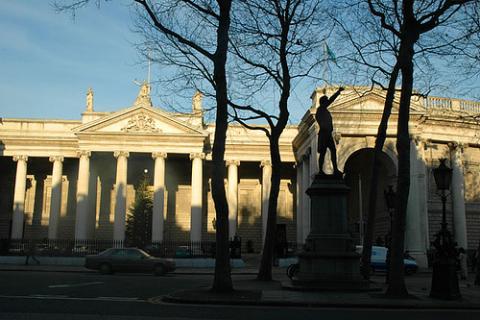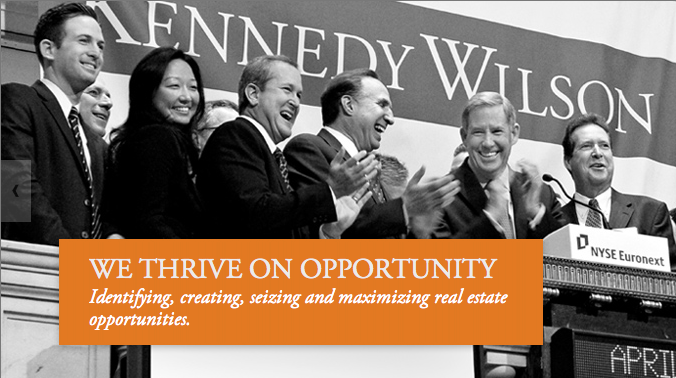The saviours of Bank of Ireland?

While the Government spun the sale of a 34.9% stake in Bank of Ireland to a group of private investors as a good news story, the sale mightn't be such good news for Bank of Ireland workers, or the Irish economy. By Paul Walsh
On 25 July the Government announced that a group of investors to had agreed to take a stake in Bank of Ireland. For the meagre sum of €1.1 billion, (compared to the billions already pumped into the banking system) these investors have acquired 34.9% of the bank. Bank of Ireland (BOI) is considered by most independent analysts to be the most viable of the Irish banks, so have these investors purchased the state china for a bargain basement price? More importantly, who are these private investors and what do their respective records tell us about their plans for this pillar Irish financial institution?
It took three days for the mysterious BOI investors to be revealed, but by 27 July they were identified. The line up included Canadian Insurance giant Fairfax Financial, taking a stake of over 9%. 9% is going to Wilbur Ross and 9% to US investment company Fidelity. The junior partners in this deal are Capital Group - an investment house also based in America - with a 6% stake; and Kennedy Wilson, who invested a mere €25m.
As far as the Government was concerned this was a good news story; an example of investor confidence in Irish banking. The state could now take a step back and let the experts take control and guide this key financial institution out of its present economic quagmire. The Government negotiations for this deal were conducted by the Department of Finance, NAMA and Goldman Sachs, so surely they vetted the potential investors. Here are just a couple of things they may have uncovered on inspection of their CVs.
Backing a loser and winning
Fairfax Financial, one of the lead drivers of this acquisition, certainly has bucked the trend in the present global recession. It is a financial holding company involved in life insurance, casualty insurance and investment management. The comapny is guided by an investment guru in the mould of Warren Buffet called Prem Watsa. He warned as early as 2003 in the company’s annual report of the dangers of subprime mortgages and the US housing bubble:
“We have been concerned for some time about the risks in asset-backed bonds, particularly bonds that are backed by home equity loans, automobile loans or credit card debt (we own no asset-backed bonds). It seems to us that securitization (or the creation of these asset-backed bonds eliminates the incentive for the originator of the loan to be credit sensitive... With securitization, the dealer (almost) does not care as these loans can be laid off through securitization. Thus, the loss experienced on these loans after securitization will no longer be comparable to that experienced prior to securitization (called a ‘‘moral’’ hazard)... This is not a small problem. There is $1.0 trillion in asset-backed bonds outstanding as of December 31, 2003 in the U.S.... Who is buying these bonds? Insurance companies, money managers and banks – in the main – all reaching for yield given the excellent ratings for these bonds. What happens if we hit an air pocket?”

However, not only did Fairfax’s CEO predict what lay ahead, he also profited from it. Fairfax built up a portfolio of credit default swaps. These swaps are a side bet on the financial health of corporations and their ability to repay debt. Fairfax gambled on the likelihood of default and disaster and they cleaned up. The company managed to double its book value over a couple of years as financial markets crumbled. In the world of high flying capitalism, Prem Watsa and Fairfax were lauded as intelligent analysts of the market. However, how ethical is it to bet on the default and collapse of other companies? And what pressures do these sorts of credit default swaps put on the share price and the ability of a company to borrow?
According to economists Yeon-Koo Che and Rajiv Sethi, these speculative credit default swaps are akin to “financial arson”. In a paper they published in 2010, they give a damning assessment of the products’ influence. Their conclusion is that they “can result in an increased likelihood of default and the emergence of self-fulfilling paths in which firms are unable to rollover their debt, even when such trajectories would not arise in the absence of credit derivatives.” So, even while this company played a role in the worldwide economic collapse, it is applauded as a saviour of the hard pressed Irish taxpayer. In the casino that is capitalism, for someone to win big there have to be many losers.
One wonders, based on the evidence, if Fairfax will have the interests of employees, customers and the Irish economy to the fore, as they influence future Bank of Ireland policy?
The vultures are coming
American billionaire Wilbur Ross is another BOI investor, through his company W.L Ross. Ross has made his fortune through “opportunity investment”. That certainly sounds entrepreneurial and innovative but a more accurate term for his modus operandi is “vulture investment”. The “vulture” swoops in at a time of economic crisis and buys up bank loans of cash-short businesses and companies on the runway for bankruptcy. Needless to say, if Wilbur Ross is investing in your company, he expects to get it on the cheap. His expertise in the area has given him the dubious titles of “dean of vulture investing” and the “King of Bankruptcy”.
His rise to prominence has not always been pretty. In fact it has been pretty ruthless. He formed the International Coal Group Inc in May 2004 after buying up many of Horizon Natural Resources’ assets in a bankruptcy auction. Ross refused to buy Horizon’s unionised mines until a U.S. bankruptcy judge ruled that the company did not have to honour its health benefits for 1,000 active miners and 2,300 pensioners. The remaining mines then became attractive to Ross and he completed their purchase, safe in the knowledge that he would not have to pick up the tab for health care and retirement benefits for thousands of miners. A rather inauspicious start to his career as a coal baron, but worse was to follow. In 2006, a roof collapse at Sago Mine in West Virginia led to the deaths of 12 miners. After the accident Ross told ABC news “that he felt that the mine was fundamentally safe”. This was despite Department of Labour records that showed 16 citations in 2005 for serious safety violations.
The IBOA (Irish Banking Officials Association) gave a cautious welcome to the announcement of new private investors in to Bank of Ireland. It seems they were right to be cautious as Wilbur Ross would not seem to be a man overly concerned with workers’ rights.
Kennedy Wilson

Kennedy Wilson, a US-based property investment and services firm, was already on the Irish radar and significantly already involved with Bank of Ireland before this announcement. In June they bought Bank of Ireland Real Estate Management, a company that manages commercial property on behalf of BOI customers. The bank, desperate to shed assets to raise capital, agreed to Kennedy Wilson acquiring €1.6 billion of their assets for an undisclosed fee. This is a company that previously profited from the Japanese property crash, so it is a suitable candidate to assist in picking clean the carcass of an Irish pillar bank.
Regulators Beware
Irish banks have had their problems with he regulators, as evidenced by various banking scandals. To be fair to Bank of Ireland, AIB has historically been the main culprit. Their charge sheet includes the activities of rogue trader John Rusnak, excess foreign exchange charging, Faldor, the DIRT scandal and their strange dealings with Charles Haughey.
BOI too has had its share of controversy and like all of the financial elite in Irish society, it played a role in the DIRT scandal. Despite this, in the Irish banking sector, it has had a cleaner reputation than others. Given recent scandals, one would expect that the investors that the government have welcomed with such fanfare would have a clean bill of health when it comes to regulatory issues. Strangely this is not the case, with US investment firm Fidelity able to give the AIB a run for its money in a contest to keep the regulators busy. In 2007, two Fidelity brokers received a $400,000 fine from the Financial Industry Regulatory Authority in the US for distributing misleading sales literature about investment plans. And who did these brokerages try and mislead? We have all heard stories about rogue financial brokers selling 20-year investments to 85-year-old grannies, but the Fidelity boys had balls. They attempted to mislead US military personnel by providing literature that gave inaccurate information about the performance of their product. This product was geared towards the military and given the high esteem in which their army is held in the US, the scandal did not make for good publicity.
The Capital Group
The last investor is also the most mysterious, given the limited nature of the information that the company release. The Capital Group is one of the biggest investment firms in the world, with shares in all the major global corporations. In an article for the Independent, Abigail Townsend describes their secretive nature: “For such an influential company, Capital is almost pathologically shy of the media. Its analysts (Capital does not call them fund managers) are never quoted in the press, it does not issue investment reports, it does not even run adverts. Its website gives you no contact numbers, and no current executives are mentioned.” Hardly a beacon of transperency, and given what has gone on with the Irish banks, more openess and and less secrecy is what our economy needs.
Getting a good deal
The Bank of Ireland deal made the business papers across the globe and they all agreed on one point: the investors got a good deal. Simon Carswell, the Irish Times finance correspondent, did some simple sums in relation to the sale and found that while the Government have invested €2 billion in to BOI and wound up with a 15% stake, our private investor heroes have invested €1.1 billion for a 34.9% stake. No matter what way the Government dress this up, it is far from a ringing endorsement of the Irish banking sector or the Irish economy. It is a group of investors speculating for profit. BOI employees, customers and the general Irish economy will not feature on their agenda. Their aim is to sell this bank on and reap the benefits. You can forget any talk of this being a long-term investment; the world continues to be in economic crisis and there are many rotting carcases out there waiting to be picked clean by these economic vultures.
Image top: ulybug.
{jathumbnailoff}
